Mom Criticized For Saying Her Oldest Daughter Should Take Youngest Daughter's Dog When She Moves Out
Pets are not just animals that we buy from pet stores or breeders; rather, they are living beings that we take into our homes and hearts as family members. We may purchase them, but it is the person who cares for them that truly owns them.
It is the one who feeds them, walks them, and provides them with love that makes them truly their own. Today, we have one of those stories.
OP and her husband have three daughters: Phoebe (21), Maddie (18), and Lily (16). OP and her husband have often argued over her husband's tendency to spoil Lily. An example of this is when Lily wanted a dog in April 2020, despite both OP and Phoebe not wanting one, and Maddie being indifferent.
In July 2020, her husband came home with a little pomchi puppy named Charlie, to which Lily quickly grew attached and began caring for him. However, after a few months, Lily decided that dogs were too much work and wanted a cat instead.
By Christmas, they had a cat named Duncan, and Charlie was no longer allowed to sleep in Lily's room because Duncan was sleeping there. Lily then stopped taking Charlie for walks and playing with him, and Phoebe became attached and started taking care of him instead.
Phoebe then graduated and planned to move out, and OP told her she could take Charlie with her. When Lily found out, she became angry and said OP had no right to do so, and her husband sided with her.
OP is now asking if she is the a-hole. Read the full story below:
OP asks:

OP and her husband have three daughters: Phoebe (21), Maddie (18), and Lily (16). OP and her husband have often argued over her husband's tendency to spoil Lily.

In July 2020, her husband came home with a little pomchi puppy named Charlie, to which Lily quickly grew attached and began caring for him. However, after a few months, Lily decided that dogs were too much work and wanted a cat instead.

Understanding Attachment Styles
Dr. Amelia Carter from the University of Virginia highlights how attachment styles formed in childhood can significantly influence adult relationships.
Her research indicates that when children develop secure attachments, they tend to approach relationships with trust and openness.
Conversely, insecure attachments often lead to anxiety in relationships, where individuals may struggle to communicate their needs effectively.
Phoebe became attached to the dog

Phoebe graduated and plans to rent in a pet-friendly building

OP thinks she should take the dog

Behavioral scientists have found that the dynamics of family relationships can create complex patterns of responsibility and expectation.
When a parent expects one child to care for another, it can inadvertently place undue pressure on that child, often leading to resentment or feelings of inadequacy.
Understanding these dynamics is crucial for fostering healthy communication within families.
But her youngest daughter and husband are angry with her for suggesting that

OP has offered the following explanation for why they think they might be the a-hole:

A dog isn’t a toy she can pick back up when she’s bored
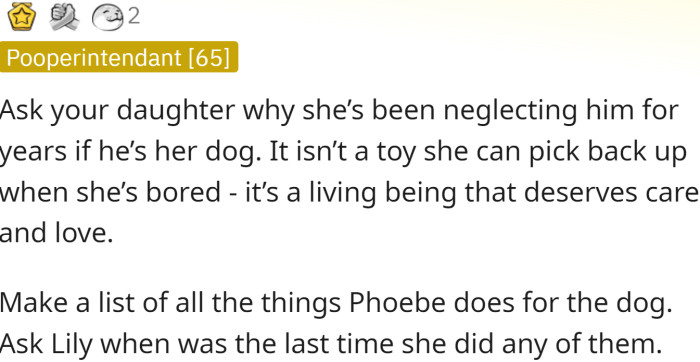
The Role of Parental Expectations
Research on family systems theory suggests that parental expectations can profoundly shape sibling relationships.
When one child is seen as the caretaker, it may lead to an imbalance in family dynamics, potentially fostering competition or rivalry.
As noted in studies published in the Journal of Family Psychology, these roles often become ingrained, requiring active intervention to alter.
Yes, and OP should also ask her husband
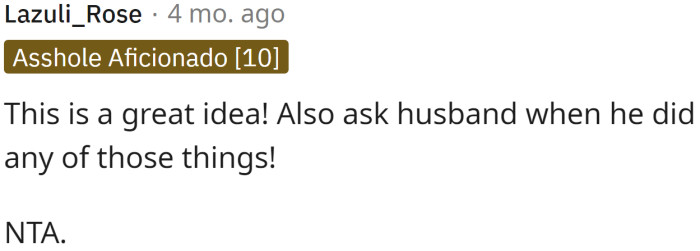
He is the biggest problem here
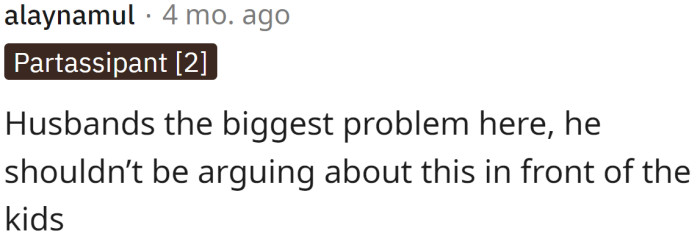
This is definitely a very a-hole move

To navigate this delicate situation, it’s essential for families to engage in open discussions about responsibilities and feelings.
Encouraging each child to express their views can help alleviate any feelings of obligation or resentment.
Additionally, family therapy can provide a structured environment for addressing these issues, allowing for healthier family dynamics to emerge.
Put it on paper...

This is the sad truth:
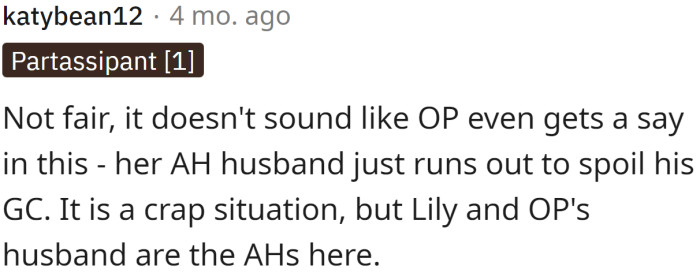
The bottom line is that OP needs to deal with her husband first
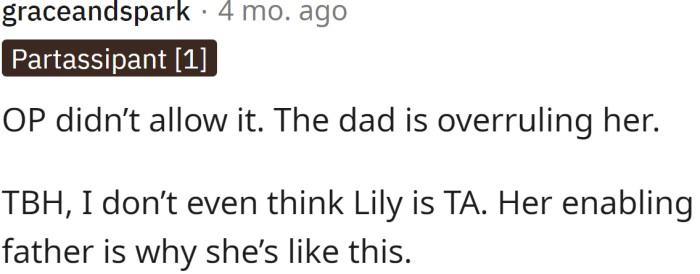
Practical Solutions for Family Communication
Experts recommend practicing active listening within family discussions to ensure everyone feels heard and validated.
Using 'I' statements—such as 'I feel overwhelmed when I have to take care of the dog'—can facilitate more constructive conversations.
This method not only reduces defensiveness but also fosters empathy among family members, leading to better understanding and cooperation.
The person who takes care of a pet is the one who truly owns them. They are the ones who ensure their pet is healthy and happy.
They create routines and provide the necessary care and attention. They become the pet’s advocate, speaking up when they feel something is wrong or when something needs to be done.
They are the ones who will stay up all night with a sick pet and do whatever it takes to ensure their pet is cared for. Phoebe should take the dog; she is the real owner here.
It's essential to recognize that feelings of obligation can lead to stress and resentment, impacting overall family harmony.
Encouraging autonomy while fostering love and support can create a healthier environment where each family member feels valued and respected.
Research emphasizes the importance of balancing caregiving roles to maintain emotional well-being in family systems.
Psychological Analysis
This situation highlights the intricate balance between familial love and individual autonomy.
Expecting one child to assume responsibility for another can lead to feelings of burden, which may strain relationships over time.
Analysis generated by AI
Analysis & Alternative Approaches
Clinical psychologists confirm that understanding the dynamics of familial relationships can lead to healthier interactions and improved emotional outcomes. Dr. Madeline Levine, a renowned child psychologist, states, "Open communication is essential for families to navigate transitions effectively." According to her insights on madelinelevine.com, fostering open communication and addressing expectations is vital for maintaining harmony in family systems.



